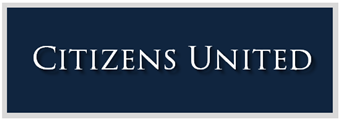October 23, 2014 •
San Francisco, California Ethics Commission to Consider Amendments
The Ethics Commission has announced two interested persons meetings on November 10 and November 13 to discuss possible changes to the city’s Campaign Finance Reform Ordinance (CFRO). Discussion at the meetings will be limited to potential changes to CFRO’s disclaimer […]
 The Ethics Commission has announced two interested persons meetings on November 10 and November 13 to discuss possible changes to the city’s Campaign Finance Reform Ordinance (CFRO). Discussion at the meetings will be limited to potential changes to CFRO’s disclaimer and third-party reporting provisions.
The Ethics Commission has announced two interested persons meetings on November 10 and November 13 to discuss possible changes to the city’s Campaign Finance Reform Ordinance (CFRO). Discussion at the meetings will be limited to potential changes to CFRO’s disclaimer and third-party reporting provisions.
Staff plans to distribute draft CFRO amendments to interested parties prior to the meetings.
Written comments regarding CFRO’s disclaimer and third-party reporting provisions can be sent to Jesse Mainardi at jesse.mainardi@sfgov.org or (415) 252-3100. R.S.V.P. by email at ethics.commission@sfgov.org.
October 23, 2014 •
Thursday News Roundup
Lobbying “Lobbyists Mobilize on Ebola Virus” by Megan Wilson for The Hill. “Some Lobbyists Play Key Role in Washington Campaign Finance” by Austin Jenkins for KUOW.org. Campaign Finance “Super PACs Exploit Disclosure Loophole” by Dave Levinthal for The Center for […]
 Lobbying
Lobbying
“Lobbyists Mobilize on Ebola Virus” by Megan Wilson for The Hill.
“Some Lobbyists Play Key Role in Washington Campaign Finance” by Austin Jenkins for KUOW.org.
Campaign Finance
“Super PACs Exploit Disclosure Loophole” by Dave Levinthal for The Center for Public Integrity.
“Big Spending by Parties, Independent Groups Drowns Airwaves in Negative Attacks” by Matea Gold for Washington Post.
“Campaign Cash Crackdown OK’d” by David Garrick for San Diego Union Tribune.
“Campaign Mailings Fuel Dispute between Parties over Campaign Finance Law” by Jenny Wilson for Hartford Courant.
“Why Las Vegas Chamber Can Give Only $10K to Candidate but $1M to Anti-Margin Tax Campaign” by Connor Shine for Las Vegas Sun.
“Former Aide Pleads Guilty to Embezzling $1.8 Million from Dewhurst Campaign Funds” by Lauren McGaughey for Houston Chronicle.
“Court Finds Republican Governors Association Violated Vermont Campaign Finance Law” by Dave Gram (Associated Press) for Columbus Republic.
Ethics
“City Council Watchdog Sues Emanuel, Aldermen” by Bill Ruthhart and Hal Dardick for Chicago Tribune.
“Panel Presents Guidelines for Pa. Turnpike Commission” by Paul Nussbaum for Philadelphia Inquirer.
Elections
“Why House Republicans Alienate Hispanics: They don’t need them” by Nate Cohn for New York Times.
October 22, 2014 •
San Diego, California Passes Advertising Rules for Independent Committees
City Council unanimously adopted new campaign contribution rules to monitor independent and primarily formed committees. Ordinance 2015-37 requires earlier disclosure of large contributors and restricts the ability of a committee to reproduce and distribute campaign advertisements used by a candidate. […]
 City Council unanimously adopted new campaign contribution rules to monitor independent and primarily formed committees.
City Council unanimously adopted new campaign contribution rules to monitor independent and primarily formed committees.
Ordinance 2015-37 requires earlier disclosure of large contributors and restricts the ability of a committee to reproduce and distribute campaign advertisements used by a candidate.
The ordinance becomes effective January 1, 2015, and is not applicable to the November 2014 election.
October 22, 2014 •
Wednesday Government Relations News
Lobbying “Lobby Firms Beat the Midterm Blues” by Megan Wilson for The Hill. “Legislators’ Trips Abroad Apparently Above Board” by Tess Townsend for New London Day. Campaign Finance “Record Public Financing Amounts Awarded to Candidates” by Gregory Hladky for Hartford […]
 Lobbying
Lobbying
“Lobby Firms Beat the Midterm Blues” by Megan Wilson for The Hill.
“Legislators’ Trips Abroad Apparently Above Board” by Tess Townsend for New London Day.
Campaign Finance
“Record Public Financing Amounts Awarded to Candidates” by Gregory Hladky for Hartford Courant.
“Donors Use Loophole to Pour Money into Governor’s Race” by Jeremy Borden for Charleston Post & Courier.
“Campaign Coordination Suit Filed in a Way to Get Favorable Judge” by Patrick Marley for Milwaukee Journal Sentinel.
Ethics
“Alabama House Speaker Mike Hubbard Indicted” by Brian Lyman (Montgomery Advertiser) for USA Today.
“Legislators Need Stricter Disclosure Rules, Advocate Tells Panel” for Indianapolis Business Journal; Staff
“In William Galvin’s Contracts, Little Public Process” by Waltyer Robinson for Boston Globe.
Elections
“Health Scare in Texas Also Sends Political Ripples” by Manny Fernandez for New York Times.
“Supreme Court Allows Texas to Use Voter ID Law” by Adam Liptak for New York Times.
Political Advertising
“Environmental Issues Become a Force in Political Advertising” by Coral Davenport and Ashley Parker for New York Times.
October 20, 2014 •
Monday News Roundup
Campaign Finance “How Billionaire Oligarchs Are Becoming Their Own Political Parties” by Jim Rutenberg for New York Times. “CalPERS Board Strips Priya Mathur of Posts after Ethics Law Violations” by Marc Lifsher for Los Angeles Times. “Massachusetts Labor Union PAC […]
 Campaign Finance
Campaign Finance
“How Billionaire Oligarchs Are Becoming Their Own Political Parties” by Jim Rutenberg for New York Times.
“CalPERS Board Strips Priya Mathur of Posts after Ethics Law Violations” by Marc Lifsher for Los Angeles Times.
“Massachusetts Labor Union PAC Agrees to $22K Fine for Various Campaign Finance Violations” by Robert Rizzuto for MassLive.com.
Ethics
“Charter School Power Broker Turns Public Education into Private Profits” by Marian Wang for ProPublica.
“State Drops Case against Mellow” by Borys Krawczeniuk for Scranton Times-Tribune.
“SC House Proposals: End leadership PACS, limit speaker’s term” by Cassie Cope for The State.
October 17, 2014 •
News You Can Use Digest – October 17, 2014
Federal: Campaign Finance Forty Years Later New York Times; Staff – | Published: 10/13/2014 Forty years after Congress passed the Federal Election Campaign Act, many of the provisions have been struck down as unconstitutional and U.S. Supreme Court rulings have […]

Federal:
Campaign Finance Forty Years Later
New York Times; Staff – | Published: 10/13/2014
Forty years after Congress passed the Federal Election Campaign Act, many of the provisions have been struck down as unconstitutional and U.S. Supreme Court rulings have paved the way for outside groups to raise and spend more money. The New York Times, in its “Room for Debate” feature, asked seven experts on the issue to give their opinions on the state of campaign finance reform today.
FEC Votes Suggest Gridlock Is Easing
Politico – Byron Tau and Kyle Cheney | Published: 10/9/2014
After some five years of ties and gridlock, the FEC approved several measures as part of a compromise brokered between its two newest members: Republican Chairperson Lee Goodman and Democratic Vice Chairperson Ann Ravel. Goodman and Ravel were both appointed at the same time by President Barack Obama in 2013, and they have forged a bipartisan alliance to help the commission function better. The FEC has long been a bastion of gridlock, and the recent votes have no practical impact on campaign finance laws. But the FEC’s action suggests further movement is possible on what has been seen as a hopelessly dysfunctional panel.
Secret Money Fueling a Flood of Political Ads
New York Times – Nicholas Confessore | Published: 10/10/2014
Fifty-five percent of broadcast advertising in the midterm elections has been paid for by groups that do not fully disclose their donors, compared with 45 percent from super PACs, which are required to file regular financial disclosures, according to an analysis by The New York Times. The preponderance of secretly funded advertising defies one of the assumptions of the U.S. Supreme Court’s Citizens United decision, which allowed outside groups to raise and spend more money, so long as they did not coordinate with candidates and parties. In the majority opinion, Justice Anthony Kennedy envisioned campaigns in which unlimited independent spending by unions and corporations would be paired with robust real-time disclosure.
From the States and Municipalities:
California – Kevin de León Becomes State Senate Leader in $50,000 Event
Los Angeles Times – Seema Metha and Patrick McGreevy | Published: 10/15/2014
Kevin de Leon was sworn in as the first Latino to head the California Senate in more than a century with an expensive soiree. The event at Walt Disney Concert Hall with an estimated price tag of $50,000 resembled a presidential inaugural more than the low-key affairs at the Capitol held by past Senate leaders. The California Latino Legislative Caucus Foundation, which receives donations from special interests seeking influence in the Legislature, picked up the tab for the event. Some suggested it was an inappropriate extravagance at a time when the state Senate is struggling to shake off the taint of corruption scandals and regain public trust.
Colorado – Citizens United Can Make Movie without Disclosing Donors, Court Says
Denver Post – Joey Bunch | Published: 10/14/2014
The 10th U.S. Circuit Court of Appeals ruled Citizens United can air a movie it has produced about Colorado politics without identifying its donors. Citizens United sued after Secretary of State Scott Gessler said the movie fell under Colorado’s campaign finance laws. A federal judge agreed the movie was electioneering that required disclosure. But Citizens United argued the film deserved the same free-speech protections as traditional media. The appeals court said while the movie is exempt from disclosure, the secretary of state’s office could require it for ads if the ads name a candidate and make a case for support or defeat.
Georgia – Once Again, a Carter Aims to Govern in Georgia
New York Times – Richard Fausset | Published: 10/15/2014
The most famous name in Georgia gubernatorial race belongs to state Sen. Jason Carter, grandson of former President Jimmy Carter. But rather than a referendum on the Carter legacy, the contest remains focused to a large extent on the record of incumbent Nathan Deal. One hurdle for Deal, said Merle Black, a political science professor at Emory University, is the possibility that conservative voters, soured by continuing ethics controversies tied to Deal’s 2010 campaign, may see him as “a candidate that they cannot get really excited about,” and sit out the election.
Illinois – Campaign Contribution Limits Off in Chicago Mayor’s Race
Chicago Tribune – John Byrne | Published: 10/14/2014
William Kelly gave $100,000 of his own money to his Chicago mayoral campaign. In doing so, he has also lifted the cap for campaign donations in the race. State law mandates that the $5,300 individual campaign contribution limit be lifted in a municipal race in one of two instances: a candidate donates at $100,000 or more to their campaign fund or an outside organization puts that much into a race to support or attack a candidate in the race.
Kentucky – Top Lobbyists Make More than Governor – a LOT More
Louisville Courier Journal – Tom Loftus | Published: 10/16/2014
Through the first eight months of 2014, Kentucky’s top lobbyists have made more money in fees than Steve Beshear will make in salary all year as governor. Lobbyist Bob Babbage, for example, has been paid $562,433 through August 31. Beshear is paid an annual salary of $138,012.
Missouri – Ethics Complaint Filed over Lobbyist Gifts to Missouri Lawmakers
Kansas City Star – Jason Hancock | Published: 10/15/2014
A complaint was filed with the Missouri Ethics Commission over a $3,000 dinner held at a Dallas steakhouse in August for five state legislators during the American Legislative Exchange Council’s annual convention. While five lobbyists reported the gifts to the commission as going to the individual lawmakers who attended, seven other lobbyists reported the gifts to “the entire General Assembly.” Missouri law states that a gift can be reported to a group – such as a committee, legislative chamber, or the entire Legislature – if all of the members of that group are “invited in writing.”
North Carolina – Former Charlotte Mayor Patrick Cannon Sentenced to 44 Months in Federal Prison
Charlotte Observer – Mark Washburn, Michael Gordon, Ames Alexander, and Rick Rothacker | Published: 10/14/2014
Former Charlotte Mayor Patrick Cannon was sentenced to 44 months in prison after admitting to using his public positions in North Carolina’s largest city for personal financial gain, including taking at least $50,000 in bribes. A nearly four-year investigation resulted in his arrest and resignation in March. Prosecutors said Cannon accepted bribes from a strip club owner and two undercover federal agents posing as investors in exchange for helping them navigate city government and zoning issues through his elected positions. Prosecutors said he took cash, paid travel to Las Vegas, and use of a luxury apartment from the undercover agents.
Oregon – Oregon’s Embattled First Lady Faces Ethics Probe over Business Activity
Washington Post – Jose DelReal | Published: 10/14/2014
After admitting to a sham marriage to help an immigrant remain in the U.S., Oregon Gov. John Kitzhaber’s fiancée said she lived on a property in 1997 that was intended to be used for a marijuana growing operation. Cylvia Hayes issued a statement saying the plan “never materialized” on the remote property. She is also under fire for earning money as a consultant from organizations seeking to influence state policy. Kitzhaber asked the Oregon Government Ethics Commission for a formal opinion on whether Hayes is subject to state ethics laws and, if so, whether she has broken them in the consulting matter. It is not clear how much damage the reports about Hayes could do to Kitzhaber’s re-election campaign.
Pennsylvania – Phila. Ethics Board Tightens Campaign-Finance Rules
Philadelphia Inquirer – Chris Hepp | Published: 10/15/2014
The Philadelphia Board of Ethics approved a series of amendments to the city’s campaign finance law, the most significant aimed at tightening restrictions on what constitutes a third party’s support of a candidate. The board approved an amendment to address the reuse of campaign materials produced by a candidate, but then picked up and distributed by an individual or PAC independent of the candidate. Under the new rule, such reuse would be considered an in-kind campaign contribution and would fall under the city’s donation limits.
Texas – An Ad with a Wheelchair Shakes up the Texas Governor’s Race
New York Times – David Montgomery | Published: 10/13/2014
Texas gubernatorial candidate Wendy Davis defended her campaign television ad that highlights opponent Greg Abbott’s use of a wheelchair, denying it exploits his disability while attacking his record. The 30-second ad begins with a shot of an empty wheelchair. It criticizes Abbot, the state’s attorney general, for receiving millions from a 1984 lawsuit after a falling tree injured his spine, then working to limit the legal rights of other victims. The spot has provoked a nationwide debate over its tone and the boundaries of political attack ads.
Washington – Ethics Panel Votes to Limit Number of Free Meals Lawmakers Can Accept from Lobbyists
Columbus Republic – Rachel LaCorte (Associated Press) | Published: 10/14/2014
Beginning January 1, Washington lawmakers could accept as many as a dozen free meals from lobbyists each year under a new rule adopted by the Legislative Ethics Board. The rule also defines a meal as a sit-down meal such as breakfast or lunch, even if the meal is served at a private residence. Receptions hosted by lobbyists would not count as a meal. The board planned to meet again before the end of the year to consider draft legislation to change the current law that only requires meals worth $50 or more to be reported to the state Public Disclosure Commission.
Wisconsin – Federal Judge Orders State to Stop Enforcing Anti-‘Coordination’ Law
WiscNews.com – Dee Hall | Published: 10/14/2014
U.S. District Court Judge Rudolph Randa blocked enforcement of a Wisconsin election law that is at the center of an investigation into Gov. Scott Walker’s 2012 recall campaign and more than two dozen conservative organizations. The ruling allows candidates to coordinate and work closely with independent groups that do not explicitly tell people how to vote. State prosecutors cited the coordination law in launching a so-called John Doe investigation into Walker’s campaign. A federal appeals court overturned a ruling from Randa in May that stopped the probe, but also said the issue needs to be resolved in state courts.
 State and Federal Communications produces a weekly summary of national news, offering more than 80 articles per week focused on ethics, lobbying, and campaign finance.
State and Federal Communications produces a weekly summary of national news, offering more than 80 articles per week focused on ethics, lobbying, and campaign finance.
October 16, 2014 •
New Campaign Finance Rules in Philadelphia
The Philadelphia Board of Ethics approved amendments to the city’s campaign finance rules this week. Included in the amendments is a more expansive definition of third party support of a candidate. Campaign materials produced by a candidate and subsequently used […]
 The Philadelphia Board of Ethics approved amendments to the city’s campaign finance rules this week. Included in the amendments is a more expansive definition of third party support of a candidate.
The Philadelphia Board of Ethics approved amendments to the city’s campaign finance rules this week. Included in the amendments is a more expansive definition of third party support of a candidate.
Campaign materials produced by a candidate and subsequently used by an individual or PAC, independent of the candidate, now constitutes an in-kind contribution subject to the city’s contribution limits. The new rule is intended to curb a growing trend among candidates of posting videos on the internet, allowing third parties to take the material and independently create political advertisements.
The board unanimously approved the changes in an expedited manner to ensure the new rules would cover the impending 2015 mayoral race.
October 16, 2014 •
Thursday News Roundup
Lobbying “Aereo registers lobbyist as it seeks new classification” by Mario Trujillo in The Hill. Arizona: “Arizona attorney general candidate faces lobbying complaint” by Phil Villarreal on KGUN ABC News. New Jersey: “N.J. lawmakers considering restricting lobbyists working for state” […]
 Lobbying
Lobbying
“Aereo registers lobbyist as it seeks new classification” by Mario Trujillo in The Hill.
Arizona: “Arizona attorney general candidate faces lobbying complaint” by Phil Villarreal on KGUN ABC News.
New Jersey: “N.J. lawmakers considering restricting lobbyists working for state” by John Reitmeyer in The Record.
Campaign Finance
“Senate Races: Where Outside Groups Spend Their Money” by Derek Willis in The New York Times.
“Anti-big money super PAC reels in big money” by Kenneth P. Vogel in Politico.
“Is Buying Influence a Right?” by David Earley in the Brennan Center for Justice Blog.
“Courting Corruption: The Auctioning of the Judicial System” by Norm Ornstein in The Atlantic.
“New Koch brothers PAC the biggest fundraiser of Q3” by Kathy Kiely, Peter Olsen-Phillips and Jacob Fenton on the Sunlight Foundation Blog.
Arizona: “Clean Elections boss says it appears schools chief John Huppenthal broke campaign finance laws” by Bob Christie (Associated Press) in The Republic.
California: “CalPERS board member stripped of leadership posts for campaign finance infractions” by Dale Kasler in The Sacramento Bee.
Illinois: “Governor race shattering campaign finance records” by Sara Burnett (Associated Press) in the Sun Herald.
Minnesota: “Fundraising-palooza: The latest on MN campaign money” by Brett Neely in Minnesota Public Radio’s Capitol View.
Missouri: “Ex-Missouri Gov. Blunt ends campaign committee” by The Associated Press in The Telegraph.
Oregon: “Michael Bloomberg gives $1.25M to Oregon’s ‘top two’ primary campaign” by The Associated Press on KATU.
Philadelphia, Pennsylvania: “Phila. Ethics Board tightens campaign-finance rules” by Chris Hepp in The Inquirer.
Ethics
Georgia: “Ga. auditor slams state ethics commission” by The Associated Press in The Telegraph.
State Legislatures
“Two lawmakers involved in shoot-out with robbers near Capitol” by Amy Worden and Allison Steele in The Inquirer.
Elections
“Supreme Court leaves its mark on the midterms” by Josh Gerstein in Politico.
“Courts Are Ruling on Voting Laws – Here’s Where They Stand” by Phil Mattingly in Bloomberg Politics.
“Battle of wits over Senate 2014 map” by James Hohmann in Politico.
Arkansas: “Arkansas’ Voter ID Law Struck Down Amid Confusion in Texas” by Lauren Raab in Governing.
Ohio: “Jerry Springer hits the road for Ohio candidate” by Ann Sanner (Associated Press) on Cincinnati.com.
Texas: “Meet Sam Houston, the Democrat Running a Lonely Campaign for Texas Attorney General” by Jay Root in Governing.
Wisconsin: “Wisconsin Democrats Try Moderation to Fight Gov. Scott Walker” by David Lauter in Governing.
Tech and Social Media
“Nonprofit Long Distance Voter Helped Provide Data for Google Voting Search Feature” by Miranda Neubauer in TechPresident.
“Digital.NYC Launches to Spur Innovation and Economic Growth” by Hilton Collins in Government Technology.
“Accela Extends Platform with Government Outreach Acquisition” in Government Technology.
Tennessee: “Tennessee Releases App in Time for the Start of Early Voting” by Richard Locker in Government Technology.
October 15, 2014 •
Connecticut Democratic Party Denounced for Seeking Advisory Opinion
The State Elections Enforcement Commission (SEEC) used unusually strong language while asking the Federal Election Commission (FEC) to prevent the Connecticut Democratic State Central Committee (CDSCC) from using federally designated funds for a state race. The state party has requested […]
 The State Elections Enforcement Commission (SEEC) used unusually strong language while asking the Federal Election Commission (FEC) to prevent the Connecticut Democratic State Central Committee (CDSCC) from using federally designated funds for a state race. The state party has requested an advisory opinion from the FEC approving the use of funds in a federal campaign account to pay for a mailing encouraging the reelection of Gov. Dannel Malloy.
The State Elections Enforcement Commission (SEEC) used unusually strong language while asking the Federal Election Commission (FEC) to prevent the Connecticut Democratic State Central Committee (CDSCC) from using federally designated funds for a state race. The state party has requested an advisory opinion from the FEC approving the use of funds in a federal campaign account to pay for a mailing encouraging the reelection of Gov. Dannel Malloy.
In a letter to the FEC, signed by all five members, the SEEC denounced the inquiry stating it would violate both the letter and spirit of state campaign finance laws. In response, the CDSCC argued it is simply seeking clarification where federal and state laws are in conflict.
Federal law requires certain “federal election activity,” potentially including mailings, be paid for with a minimum of 15 percent federal funds whereas Connecticut law requires state candidates be supported exclusively with state funds. The CDSCC believes, should its reading of the law be confirmed, federal law will preempt state statutes and the use of federal funds will be required.
October 15, 2014 •
Contribution Limits Lifted in Chicago Mayoral Race
The campaign contribution limits have been lifted for candidates in the Chicago mayoral race. Under state law, the limits are lifted for all candidates in a local race once a candidate in said race exceeds $100,000 in contributions to his […]
 The campaign contribution limits have been lifted for candidates in the Chicago mayoral race. Under state law, the limits are lifted for all candidates in a local race once a candidate in said race exceeds $100,000 in contributions to his own campaign within a year of the election.
The campaign contribution limits have been lifted for candidates in the Chicago mayoral race. Under state law, the limits are lifted for all candidates in a local race once a candidate in said race exceeds $100,000 in contributions to his own campaign within a year of the election.
Conservative candidate William J. Kelly reached the $100,000 threshold on Monday. This is seemingly good news for Rahm Emanuel, who will now be able to go back to wealthy supporters to add to his campaign war chest.
Kelly argues lifting the caps does not help his opponent, however, as Emanuel already has all the money he needs. Kelly contends the playing field has been leveled as anti-Emanuel groups are now free to contribute to him as much as they want.
October 15, 2014 •
Wednesday Government Relations News
Lobbying “Lobbying World” in The Hill. “Will All the GOP Lobbyists Please Stand Up?” by Kate Ackley in Roll Call. Alabama: “Powerful Alabama teacher lobbyist Paul Hubbert dies” by The Associated Press in The News Courier. Campaign Finance “Goldwater would […]
 Lobbying
Lobbying
“Lobbying World” in The Hill.
“Will All the GOP Lobbyists Please Stand Up?” by Kate Ackley in Roll Call.
Alabama: “Powerful Alabama teacher lobbyist Paul Hubbert dies” by The Associated Press in The News Courier.
Campaign Finance
“Goldwater would have hated ‘Citizens United’” opinion piece by Ron Fein in The Washington Post.
“Renewal of the establishment, fueled by money” by Heath Brown in The Hill.
Colorado: “Citizens United can make movie without disclosing donors, court says” by Joey Bunch in the Denver Post.
Kentucky: “Pro-Grimes super PAC money also from out-of-state” by Tom Loftus in The Courier-Journal.
Maine: “State senator from Sanford used PAC money to pay himself and family $17,000” by Naomi Schalit in the Portland Press Herald.
Ethics
“FEC Rulemakings Roil Agency, Critics | Rules of the Game” by Eliza Newlin Carney in Roll Call.
Michigan: “Terri Lynn Land held state meetings at family business” by John Bresnahan in Politico.
Missouri: “Ethics complaint filed over lobbyist gifts to Missouri lawmakers” by Jason Hancock in the Kansas City Star.
North Carolina: “Former Charlotte Mayor Sentenced to Nearly 4 Years in Prison” by Michael Gordon in Governing.
Washington: “No more free lunch: Washington sets limits on how often lobbyists can ply lawmakers” by Reid Wilson in The Washington Post.
Congress
“Laws plummet in post-earmark era” by Niki Papadogiannakis in The Hill.
Elections
“Four Republicans look to make comebacks” by Cristina Marcos in The Hill.
Colorado: “As Midterms Approach, Colorado Stands Out in Expanding Access” by Jonathan Brater in the Brennan Center for Justice Blog.
Tech and Social Media
“Twitter’s Most Popular Congressional Staffer Gets New Title” by Niels Lesniewski in Roll Call.
October 15, 2014 •
Federal Appeals Court Rules for Citizens United
On Tuesday, October 14, the 10th Circuit Court of Appeals ruled Citizens United may air a documentary slamming Colorado liberals without disclosing its backers. The conservative group argued Colorado campaign finance laws burden some speakers while protecting others, in violation […]
 On Tuesday, October 14, the 10th Circuit Court of Appeals ruled Citizens United may air a documentary slamming Colorado liberals without disclosing its backers. The conservative group argued Colorado campaign finance laws burden some speakers while protecting others, in violation of the First Amendment.
On Tuesday, October 14, the 10th Circuit Court of Appeals ruled Citizens United may air a documentary slamming Colorado liberals without disclosing its backers. The conservative group argued Colorado campaign finance laws burden some speakers while protecting others, in violation of the First Amendment.
The court issued an emergency injunction allowing Citizens United to get the film out before the Nov. 4 election. While the movie will be exempt from disclosure, the court will allow the secretary of state to require disclosure for advertisements about it, if the ads are in support or in defeat of a named candidate.
October 15, 2014 •
Wisconsin Federal Judge Allows Campaign Coordination
U.S. District Judge Rudolph Randa ordered Wisconsin officials to stop enforcing the state law prohibiting certain coordination between candidate campaigns and independent groups. Randa’s order came in a lawsuit filed by Citizens for Responsible Government Advocates against the state Government […]
 U.S. District Judge Rudolph Randa ordered Wisconsin officials to stop enforcing the state law prohibiting certain coordination between candidate campaigns and independent groups. Randa’s order came in a lawsuit filed by Citizens for Responsible Government Advocates against the state Government Accountability Board and Milwaukee County District Attorney John Chisholm.
U.S. District Judge Rudolph Randa ordered Wisconsin officials to stop enforcing the state law prohibiting certain coordination between candidate campaigns and independent groups. Randa’s order came in a lawsuit filed by Citizens for Responsible Government Advocates against the state Government Accountability Board and Milwaukee County District Attorney John Chisholm.
Randa ruled the state cannot regulate groups coordinating with candidates, so long as the groups engage in issue advocacy. Groups engaging in issue advocacy generally make efforts to favor or criticize a candidate without explicitly urging a vote for or against the candidate.
The case will likely be appealed considering Randa’s prior related decision to halt a John Doe investigation against the campaign of Gov. Scott Walker was overturned by the 7th U.S. Circuit Court of Appeals.
October 14, 2014 •
California FPPC Announces Proposed Amendments
The Fair Political Practices Commission (FPPC) has given notice of proposed amendments to regulations in Title 2, Division 6 of the California Code of Regulations. The FPPC will make adjustments to the gift and campaign contribution limits to reflect changes […]
 The Fair Political Practices Commission (FPPC) has given notice of proposed amendments to regulations in Title 2, Division 6 of the California Code of Regulations. The FPPC will make adjustments to the gift and campaign contribution limits to reflect changes in the consumer price index.
The Fair Political Practices Commission (FPPC) has given notice of proposed amendments to regulations in Title 2, Division 6 of the California Code of Regulations. The FPPC will make adjustments to the gift and campaign contribution limits to reflect changes in the consumer price index.
In order to provide the adjustment in time for the new calendar year, the November index is used to make the final calculation. The proposed amendments make adjustments for the period from January 1, 2015, through December 31, 2016.
The FPPC will consider the proposed regulations at a public hearing on or after November 20, 2014. The proposed amendments are available here.
State and Federal Communications, Inc. provides research and consulting services for government relations professionals on lobbying laws, procurement lobbying laws, political contribution laws in the United States and Canada. Learn more by visiting stateandfed.com.

